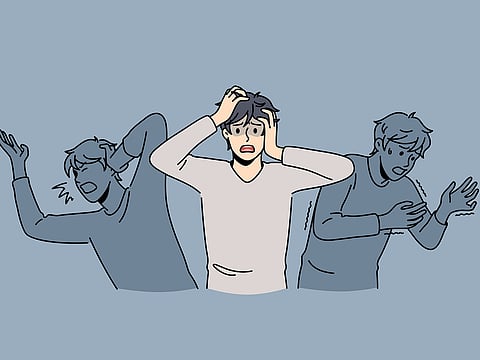Why does your horoscope feel so personal even when it's not? Understanding Barnum Effect and how to mitigate it
We tend to find ourselves in vague, generalised affirmations

What kind of cat are you, reads the name of the personality test.
You take it—after all, you’ve got ten minutes to spare. And here it comes: the results. It reads: You’re like a rare loving cat who just wants to stay home and be in front of a fireplace. ‘Oh that is so me,’ You exclaim. These are the fun kind of tests, where you find joy in cute, ambiguous statements. Yet, you might or might not be one of the few who still takes personality tests seriously. Or, one of those who look for hope in horoscope predictions. It’s fine to admit to be one of those who reads a horoscope that said you had a bad day and acknowledge that you indeed, had a bad day.
This tendency to find ourselves in vague, generalised descriptions? That’s the Barnum Effect at work.
What’s the Barnum effect?
Charlotte Wilson, a clinical psychologist based in Abu Dhabi, explains that we crave affirmation and are drawn to general statements that seem personal. We look a little too keenly in things that are generally neutral or generalised. When we encounter statements that seem personalised, our brain tends to focus on the parts that feel true, ignoring the parts that don’t. This is closely related to the self-serving bias, where we’re more likely to accept information that aligns with our existing beliefs or desires.
In addition, cognitive dissonance—the discomfort we feel when presented with conflicting information—encourages us to believe in these general statements. If a horoscope or personality quiz seems to tell us something positive, even if vague, we want to believe it because it matches our self-image or what we wish to be true. This is why we tend to see these broad, flattering statements as surprisingly accurate, despite their lack of specificity.
This need for control brings us to another phenomenon tied to the Barnum Effect—the illusion of predictability.
The illusion of predictability
It’s always comforting to read a spate of horoscopes, personality tests and fortune cookies during uncertain times, because it taps into a deep-rooted need for control. “When facing unpredictable aspects of life, such as relationships, career decisions, or personal dilemma, we naturally seek patterns and explanations,” explains Wilson. So, these vague predictions somehow provide a sense of structure, making us feel as if we have a special insight into ourselves and future. Recalling a friend of hers who would determinedly read several horoscopes a day, “So, when one thing turned out right, for example a bad day at work, she would triumphantly say, well see, my horoscope did warn me.”
Even when these statements lack scientific rigor, they create an illusion of predictability. This feeling of control is psychologically comforting because it reduces anxiety. Instead of embracing the unknown, we latch onto reassuring narratives, whether from a personality test claiming we’re ‘natural leaders’ or a horoscope promising financial success. These insights, even if generalised, help us rationalise our experiences, giving us a sense of agency over our choices.
This effect becomes even more powerful when we’re struggling with complex personal questions. When life feels chaotic, receiving an external validation—however vague—can feel like clarity. It’s why people often turn to astrology, when relationships end, career assessments when feeling lost. The Barnum Effect provides an easy-to-digest narrative about who we are and what we should do, making us feel seen and understood, even when the insights aren’t uniquely tailored to us.
Implications of the Barnum effect
In our vulnerable states, we rely more on these vague statements. We look for any sort of hope and reassurance in these scenarios. Tania Shree, a Dubai-based homemaker remembers with a laugh, how she looked through several fortune cookies, hoping to find assurance that her former partner would be the one she would end up marrying. “Newsflash, he wasn’t. But I was ready to believe any horoscope and test,” she says.
The Barnum Effect subtly shapes the way we perceive ourselves, influencing everything from personal decisions to consumer behaviour. By making vague statements feel deeply personal, it fuels our desire for certainty, especially in times of doubt. This cognitive bias makes us more to even marketing tactics designed to feel that they were just for us. We call it a sign. It offers comfort and validation, but at the cost of genuine self-awareness, sometimes leading us to trust misleading narratives over critical thinking. Recognising this effect helps us question what truly defines us. “The problem arises when you start relying on different snatches of vague reassurance than your own self-confidence and belief. We start placing too much importance on the external factors, abandoning our own mental health in the process,” says Wilson.
How to mitigate the Barnum Effect
Well, for starters, acknowledging that it exists, is a good defense. You’ve to just remind yourself that it exists, and it could be obscuring your judgment. Enjoy taking personality tests and reading a variety of horoscopes, but don’t treat it as a complete blueprint for the future. “None of it is set in stone,” says Wilson.
It requires a certain level of critical thinking, so here’s how to mitigate it:
Question the specificity – Ask yourself if a statement is truly unique to you or could apply to almost anyone.
Seek evidence – Look for scientific backing when assessing personality tests or predictions.
Avoid emotional bias – Recognize that feeling validated doesn’t mean something is accurate.
Compare across contexts – See if similar statements resonate across different sources.
Develop self-understanding – Rely on introspection and objective assessments rather than vague descriptions.




